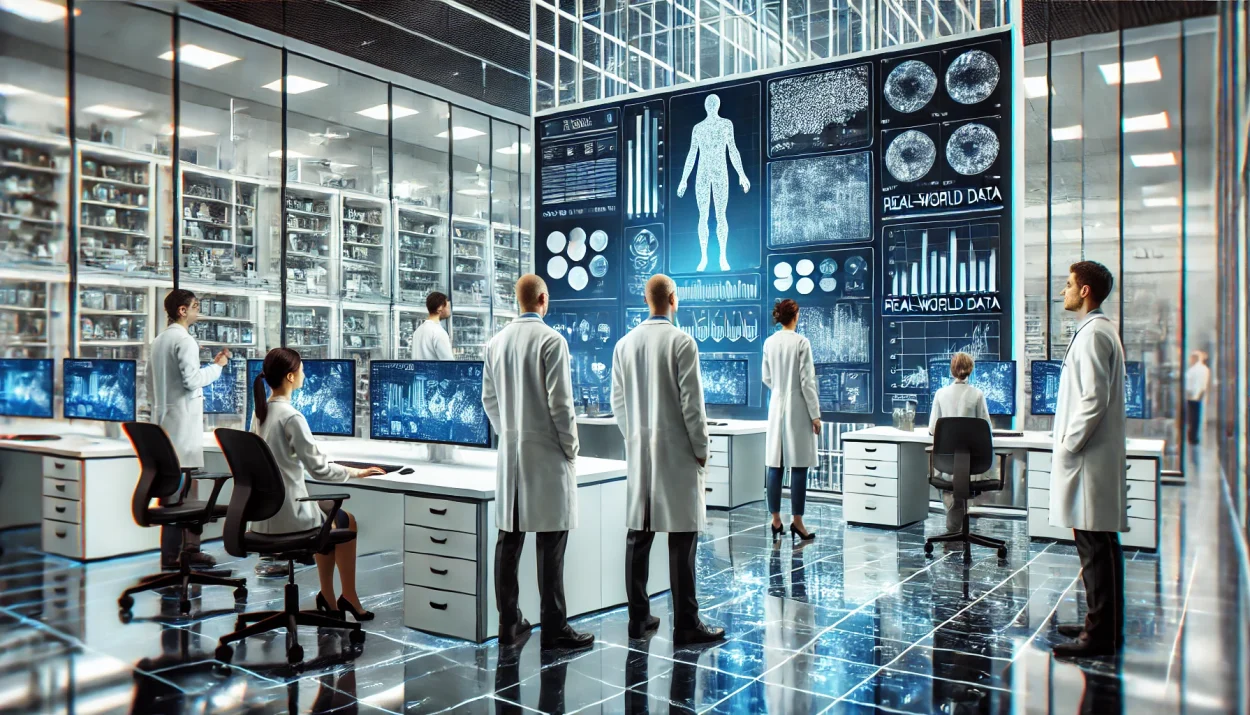In this conversation with Miruna Sasu, President and CEO of COTA Healthcare, we explore the transformative power of real world data (RWD) in oncology. With a background spanning pharmaceutical giants and health tech innovators, Sasu shares her vision for leveraging RWD to accelerate drug development and enhance patient outcomes. This interview delves into COTA’s cutting-edge methodologies, strategic partnerships, and AI and machine learning integration in healthcare.
Moe: COTA’s mission is to create clarity from fragmented RWD. Can you elaborate on the technologies and methodologies you use to analyze trial data effectively?
At COTA, we provide RWD in datasets and analytics services as a solutions partner. We extract electronic medical records data, de-identify it, and clean it for research. This ensures data integrity and usability. Our proprietary platform uses AI and machine learning to extract data from structured sources like dropdown menus and unstructured sources like doctors’ notes. These notes often contain critical information about disease stages and treatment paradigms. After AI surfaces the relevant data, medical professionals review it for accuracy. This process allows us to answer complex questions about treatment regimens and patient outcomes, driving better healthcare decisions.

Moe: You partnered with Guardant Health to advance precision oncology research. What outcomes do you expect, and how will this impact cancer care?
Our collaboration with Guardant Health exemplifies how partnerships enhance data depth. Integrating electronic medical record data with lab results, like DNA and RNA sequencing, gives us a comprehensive view of a patient’s status and treatment response. This integration is crucial in oncology, where understanding the genetic makeup of tumors leads to more precise and personalized treatment options. The expected outcome is a holistic understanding of cancer patients, significantly improving treatment efficacy and patient outcomes. This collaboration shows how combining different data sources can lead to breakthroughs in precision medicine, ultimately transforming cancer care.
Moe: With your experience in pharma and health tech, what synergies do you see in leveraging RWD to accelerate drug development and improve patient outcomes?
My experience in both sectors highlights RWD’s transformative potential in clinical trials. At J&J, I focused on increasing diversity and improving enrollment efficiency. RWD can identify suitable patients and sites, reducing time and costs. Instead of opening trial sites blindly, we use RWD to pinpoint locations with eligible patients, ensuring trials are conducted where needed. Integrating electronic medical records directly into trial systems eliminates redundant data entry, speeding up the process and allowing patients to access potentially life-saving treatments sooner. This synergy between pharma and health tech is crucial for advancing drug development and improving patient care.
Moe: How do external control arms using RWD enhance clinical research’s efficiency and ethical considerations?
External control arms are a game-changer in clinical research. At Bristol-Myers Squibb, we aimed to incorporate RWD into every submission, despite initial resistance from regulatory bodies like the FDA. Today, the landscape has evolved, and COTA is involved in numerous external control arm projects annually. They reduce the need for traditional control groups, allowing more patients to receive experimental treatments. This approach accelerates drug approvals and addresses ethical concerns by minimizing the number of patients in the control group. Our work has helped several drugs reach the market faster, which is vital for patients with life-threatening conditions who cannot afford to wait.
Moe: With AI and ML adoption in healthcare, how does COTA ensure these technologies maintain patient privacy and data security?
Privacy and security are paramount at COTA. We partner with large, secure platforms like Google Cloud to safeguard our deidentified data. We also work with 3rd party privacy experts to ensure our data is not at risk of reidentification and conduct regular audits to ensure compliance. AI is crucial in enhancing security by generating insights without data leaving our secure environment. Our AI assistant, CAILIN, facilitates this process by providing insights directly from our datasets, reducing the need for data transfer. This approach safeguards patient information and streamlines the research process, making it more efficient and secure. Maintaining rigorous security measures ensures that patient privacy is always protected while leveraging AI’s full potential.
Moe: Reflecting on your journey, how have your experiences shaped your vision for the future of RWD in oncology?
My journey has reinforced the importance of using AI as a workhorse for data cleaning and preparation, often the most time-consuming aspects of data analysis. By automating these processes, we can focus more on deriving insights and improving patient care. We’ve seen significant productivity gains at COTA by leveraging AI in these areas. For example, our AI-driven data abstraction has allowed us to reallocate 30% of our staff to more engaging tasks, enhancing overall efficiency. This trend will continue to revolutionize how we conduct clinical trials and research, leading to faster and more effective patient treatments.
Moe Alsumidaie is Chief Editor of The Clinical Trial Vanguard. Moe holds decades of experience in the clinical trials industry. Moe also serves as Head of Research at CliniBiz and Chief Data Scientist at Annex Clinical Corporation.








